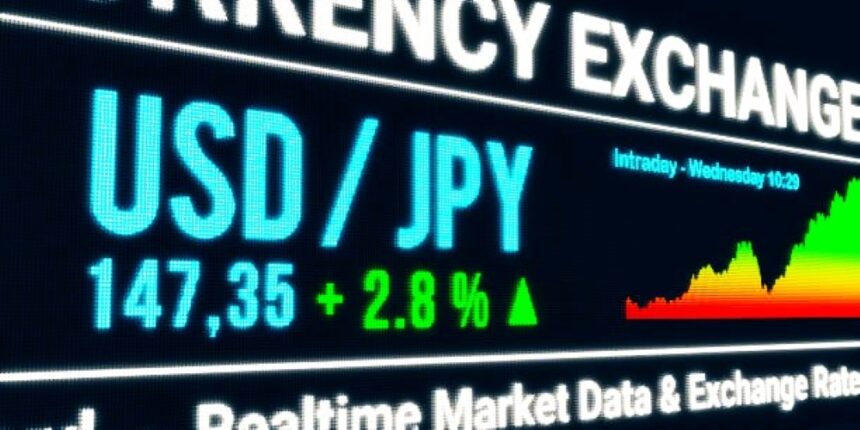Japanese yen fell to a new monthly low versus the US dollar on Friday.
The Japanese yen (JPY) is down against the US dollar for the fifth day in a row, reaching a two-week low during Friday’s Asian session.
Fading anticipation for a December rate hike by the Bank of Japan continue to weigh on the JPY.
The growing market assumption that the Bank of Japan (BoJ) would not raise interest rates at its impending policy meeting next week is undermining the JPY. In addition, there are expectations for The less dovish Federal Reserve (Fed) remains supportive of the recent rise in US Treasury bond yields, which appears to be another reason driving flows away from the lower-yielding JPY.
Rising US bond rates provide support for the USD and the USDJPY pair.
However, a softer risk tone, combined with continuing geopolitical risks and fears over US President-elect Donald Trump’s tariff proposals, provides some support for the safe-haven JPY. The US Dollar (USD), on the other hand, consolidates its weekly advances to a new monthly high while failing to help the USDJPY pair build on its momentum above the 153.00 level. Traders also appear to be reluctant to put aggressive wagers and may now prefer to shift to the sidelines ahead of next week’s big central bank event risks, the highly anticipated FOMC and the BoJ policy meeting. .
Daily Market Update: Japanese yen bulls remain on the sidelines amid worries about the Bank of Japan’s rate-hike plan.
The Bank of Japan’s quarterly Tankan survey revealed on Friday that the headline indicator reflecting big manufacturers’ business optimism increased to +14 in September-December, the best score since March 2022. Furthermore, corporations predict that inflation would climb by 2.4% per year from now.
Expectations that consumer prices in Japan will remain over the BoJ’s 2% objective, along with a moderately expanding economy and wage increases at the quickest rate since November 1992, give the BoJ additional incentive to raise interest rates. However, media sources suggested that the Bank of Japan may not raise interest rates this month.
Reuters, citing sources familiar with the Bank of Japan’s thinking, said on Thursday. that the central bank is considering keeping interest rates unchanged next week. According to the report, officials prefer to spend more time examining overseas threats and signals about next year’s wage prospects.
According to a Bloomberg story on Wednesday, BoJ officials see no cost in delaying interest rate increases while remaining open to a boost next week based on data and market events. This, combined with contradictory signals from BoJ officials, adds to the uncertainty around the December policy decision.
Kazuo Ueda, Governor of the Bank of Japan, recently stated that the next rate hike is nearing. Toyoaki Nakamura, a dovish board member at the Bank of Japan, stated that the central bank should proceed with caution while raising interest rates. This continues to weigh on the Japanese yen and sends the Japanese yen(USDJPY) pair to over a two-week high.
US Bureau of Labor Statistics revealed that the headline Producer Price Index (PPI) increased by 0.4% in November.
On Thursday, the US Bureau of Labor Statistics revealed that the headline Producer Price Index (PPI) increased by 0.4% in November, up from an upwardly revised 0.3% gain the previous month. Furthermore, the annual rate increased from 2.6% in October to 3% during the reporting month.
The annual core PPI grew 0.2% in November to 3.4% over the same month last year, exceeding expectations. This comes on top of Wednesday’s US consumer inflation numbers, indicating that progress toward the Federal Reserve’s 2% objective has stagnated.
This could compel the Fed to adopt a more cautious attitude, indicating fewer rate reduction coming at a slower rate than initially expected. This remains supportive of future increases in US Treasury bond rates, driving the US Dollar to a new monthly high while also weighing on the lower-yielding Japanese yen.
The market’s focus now switches to the key central bank event risks for next week, including the outcome of the highly anticipated two-day FOMC monetary policy meeting and the critical BoJ decision. Meanwhile, traders may choose to remain on the sidelines and avoid putting strong directional bets.









